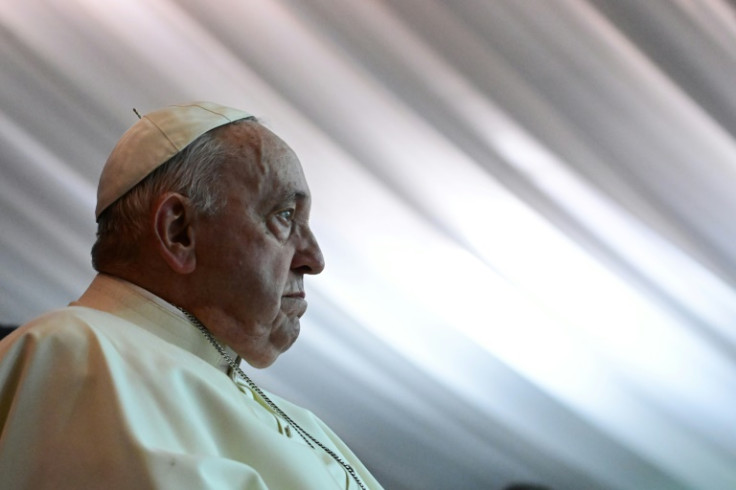
Pope Francis, the first Latin American and Jesuit pontiff who redefined the role of the Catholic Church in modern society, died early on Easter Monday at the age of 88 — just hours after making a surprise appearance in St Peter's Square to bless crowds during one of Christianity's holiest days.
The Vatican confirmed that the Pope passed away at 7:35am on Monday, 21 April, following a prolonged battle with respiratory illness. Cardinal Kevin Farrell, Camerlengo of the Apostolic Chamber, delivered the announcement from the chapel at the Domus Santa Marta, the Pope's Vatican residence.
'Dearest brothers and sisters, with deep sorrow I must announce the death of our Holy Father Francis,' said Farrell. 'His entire life was dedicated to the service of the Lord and of His Church. He taught us to live the values of the Gospel with fidelity, courage, and universal love, especially in favour of the poorest and most marginalised.'
The news stunned the global Catholic community, many of whom had just witnessed the Pope addressing crowds from the balcony of St Peter's Basilica on Easter Sunday. Although he looked noticeably frail, Francis managed to offer a wave and smile before embarking on an impromptu drive around the square in the popemobile, drawing cheers and applause.
Final Public Appearances
His Easter address — delivered by a clergy member due to his weakened voice — marked his highest-profile appearance since being discharged from hospital in March, where he spent 38 days fighting double pneumonia.
Just prior to Easter Sunday, he had continued a surprisingly active public schedule. On Thursday, he visited a prison in Rome, and on Saturday evening, he returned to St Peter's Basilica. He had also met briefly with US Vice President JD Vance in a closed-door session.
Despite his efforts to appear in good spirits, many noted his physical frailty. According to reports, Francis had suffered from chronic lung disease since the age of 21, when he had part of one lung removed. His final hospital stay was the longest of his papacy, lasting over five weeks.
A Pontiff Who Championed the Marginalised
Pope Francis, born Jorge Mario Bergoglio in Buenos Aires in 1936 to Italian immigrants, became the first non-European pope in nearly 1,300 years when elected in 2013. His papacy was marked by a strong commitment to social justice, climate advocacy, and outreach to the world's most vulnerable populations.
He championed migrants' rights, condemned what he called the 'globalisation of indifference', and did not shy away from criticising powerful leaders — including former US President Donald Trump — over immigration and economic policies. His positions often placed him at odds with conservative factions of the Church, particularly in the United States.
According to The Guardian, tributes have poured in from world leaders, with French President Emmanuel Macron praising Francis for 'always siding with the most vulnerable', and Israel's President Isaac Herzog remembering him as 'a man of deep faith and boundless compassion'.
Legacy and Controversy
Throughout his 12-year papacy, Francis pursued reforms aimed at making the Church more transparent, inclusive, and responsive to the challenges of the modern world. He pushed for accountability in addressing clerical sexual abuse and oversaw new laws to hold bishops responsible for coverups.
He also softened the Church's approach to divorced Catholics, approved blessings for same-sex couples, and promoted the expanded role of women within the Vatican.
However, his progressive stance drew ire from ultra-conservatives, and critics argued he did not go far enough to address systemic abuse or overhaul outdated doctrines. Debates around ordaining married men, female clergy, and LGBTQ+ acceptance remained unresolved at the time of his death.
Despite these challenges, his humility and emphasis on pastoral care won him admiration far beyond the Catholic Church. As noted in CNN's coverage, his choice to live in a modest Vatican guesthouse rather than the traditional papal palace symbolised his desire for a simpler, more accessible church.
Preparing for a New Chapter
With his passing, the Vatican now prepares for a period of mourning and transition. Cardinals from around the world will soon convene in Rome for the conclave to elect the next pope. The outcome is expected to shape the Catholic Church's direction for decades to come.
Francis leaves behind a legacy defined by compassion, humility, and an unwavering commitment to those on the margins of society. His death, coming so soon after a moment of joy and connection with his followers, serves as a poignant reminder of a life lived in service — right to the end.







